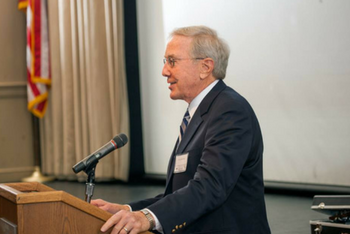Sarah has a rare condition that causes her joints to dislocate, making her reliant on an electric wheelchair to get around. On her way to a meeting recently, Sarah rode her wheelchair to the train station but found the elevator broken. Again. With no way of getting to the platform, she was told to take a taxi to another station forty minutes away. The taxi was called but never arrived. Sarah gave up and went home.
Unfortunately, this is a regular occurrence for Sarah. Broken elevators stop her boarding trains, forgotten ramps leave her unable to get off them. Sometimes Sarah is treated as a nuisance by railway staff for needing assistance. She’s often close to tears.
Out of the many biblical laws governing human relationships, “love your neighbor as yourself” is key (Leviticus 19:18; Romans 13:8–10). And while this love stops us lying, stealing, and abusing others (Leviticus 19:11, 14), it also changes how we work. Employees must be treated fairly (v. 13), and we should all be generous to the poor (vv. 9–10). In Sarah’s case, those who fix elevators and drag out ramps aren’t doing inconsequential tasks but offering important service to others.
If we treat work as a means to a wage or other personal benefit, we will soon treat others as annoyances. But if we treat our jobs as opportunities to love, then the most everyday task becomes a holy enterprise.
Source: Our Daily Breat
 Right Start
Right Start